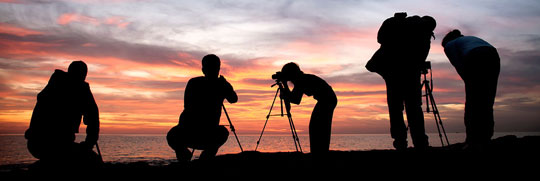Capturing stunning images of impressive landscapes and attractive portraits is a popular pastime as well as a serious occupation for numerous people. Maneuvering the camera is a skill that can be learned only from experts in the field. If you are interested in a career in photography or just want to enhance your dexterity as an amateur photographer, consider joining a good quality photography training course.
Things to learn in photography training course:
The classroom-based photography courses provide first hand experience in handling the camera, you can visit photo retouching studio to learn more about photography and retouch. Courses are designed according to the skill level of the learner. Beginner’s courses are designed for novices with no or minimal experience in the field. After learning the basics of photography, your interest in photography may prompt you to join the intermediate photography training course to learn the creative elements of photography.

Intermediate photography courses are tailored to suit the specific requirements of wannabe photographers eager to learn the tricks of capturing stunning stills. Even after attending the intermediate course, if you feel that there are specific areas of photography that you need to master to excel as a photographer, consider joining an advanced photography training program.
Camera focus
The first lesson in a basic photography course designed for beginners focuses on handling the camera focus. Although the standard point and shoot cameras nowadays come with autofocus, nonetheless, you should know the different ways of manipulating the focus of a camera to produce outstanding sharp images regardless of the distance of your subject from the camera lens.
Exposure control
The next step in photography is to control the exact amount of light that will enter the camera to balance the brightness and darkness in an image. The exposure is controlled by adjusting the aperture, shutter speed, and ISO speed.
White balance
To eliminate unrealistic color casts from pictures, a photographer should take into account the white balance while snapping photos. Digital cameras are equipped with an array of preset white balances. Understanding this important feature of the camera will help you to control the quality of pictures in a wide range of lighting conditions.
Sharpness
Your expertise in photography will be judged by the amount of detail you can capture in an image. Controlling the sharpness of an image is a creative tool that people with the deeper understanding of photography can expect to master. By controlling shutter speed, avoiding camera jerks and controlling acutance you can significantly improve the sharpness of an image.